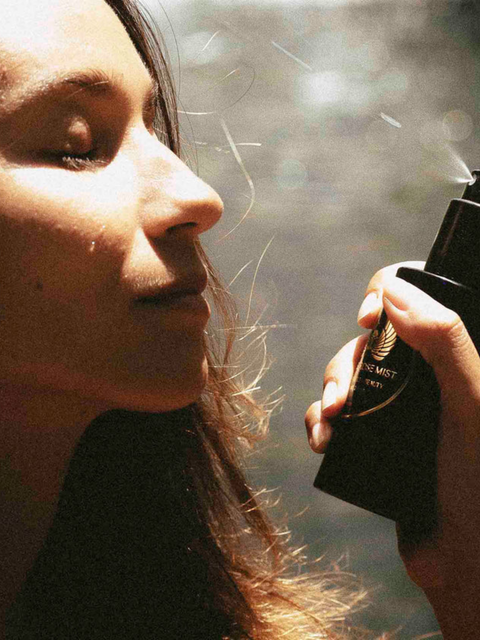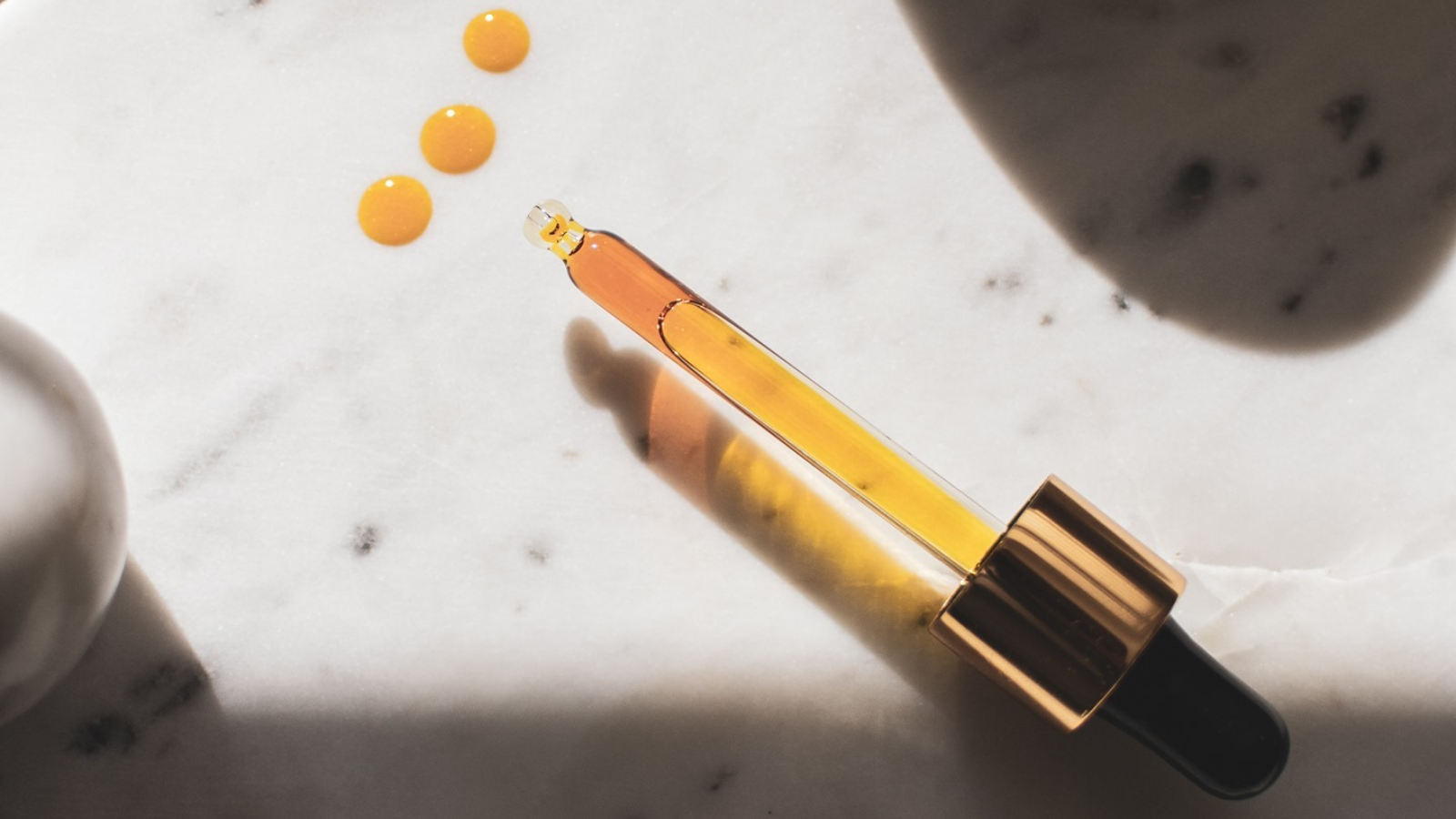
Managing Acne-Prone Skin: Expert Advice And Solutions
Key Takeaways:
- Understanding Acne Causes: Hormonal fluctuations, diet, improper skincare, environmental factors, and genetics play significant roles in acne development. Recognizing these can help tailor an effective management strategy.
- Skincare Routine Essentials: For acne-prone skin, gentle cleansing, regular exfoliation with chemical exfoliants, moisturizing with oil-free products, and using non-comedogenic sun protection are pivotal.
- Lifestyle and Diet Adjustments: Managing stress, maintaining proper hydration, exercising regularly, and adopting a balanced diet can significantly improve skin health and reduce acne outbreaks. To learn more, checkout our blog on From Vitamin A To Vitamin E: The Nutrients For Beauty, Health, And Longevity.
Acne-prone skin, marked by regular outbreaks and imperfections, affects many people worldwide, impacting confidence and dermal wellness. Although often linked to teenage hormonal shifts, adult acne is also common, arising from genetics, dietary habits, stress levels, and skincare routines. Recognizing your skin type and the particular requirements for managing acne is crucial for improving your skin's clarity and health. We will discuss professional recommendations and efficient, eco-friendly strategies for controlling and averting acne episodes.
Tailor your acne management strategy with the Sacred Set + Travel Set, perfect for both at-home use and on-the-go care. This comprehensive kit combines the benefits of the Sacred Rose Toner and Sacred Serum Face Oil with travel-friendly sizes, ensuring your skin receives consistent, soothing treatment wherever you are. Invest in this ultimate skincare solution to help maintain clarity, health, and balance for acne-prone skin. Elevate your routine and keep your skin vibrant, no matter your location.
Celebrate Hydrated Skin's Radiance with Sacred RituelExperience the perfect blend of nature and technology in every product. Engage in a skincare routine that nurtures both your skin and spirit.
Let each use be a moment of self-care and a testament to the synergy between personal health and ecological integrity. Begin Your Path to Luminous, Vibrant Skin with Sacred Rituel. |
Understanding The Causes Of Acne
Acne is not just a superficial skin condition but a complex process influenced by various internal and external factors. Understanding these can be crucial in managing acne-prone skin effectively.
Hormonal Fluctuations
One of the primary culprits behind acne, hormonal changes, especially increases in androgens (male hormones present in both males and females), can cause an increase in sebum production, leading to clogged pores and breakouts.
Diet And Lifestyle
While the connection between acne and diet is still being researched, certain foods, particularly those high in sugar and dairy, may exacerbate acne in some individuals. Stress and lack of sleep can also trigger hormonal changes that worsen acne.
Improper Skincare
Using products that are not suited for acne-prone skin can aggravate the condition. It's important to avoid heavy, comedogenic (pore-clogging) products and opt for non-comedogenic, clean, and sustainable skincare solutions.
Environmental Factors
Pollution, humidity, and extreme weather conditions can also contribute to acne by clogging pores and introducing bacteria to the skin.
Genetics
A genetic predisposition can play a significant role in one's likelihood of developing acne. If your parents had acne, you might be more prone to experiencing it as well.
Essential Skincare Tips For Acne-Prone Skin
Managing acne-prone skin requires a mindful skincare routine that aims to keep the skin clean, balanced, and hydrated without exacerbating acne. Here are some essential tips tailored for those with acne-prone skin:
Gentle Cleansing
Opt for gentle, non-comedogenic cleansers that remove dirt, oil, and makeup without stripping the skin's natural oils. Over-washing or using harsh products can irritate the skin and worsen acne.
Exfoliation
Regular exfoliation helps remove dead skin cells that can clog pores. However, it's crucial to use a mild, chemical exfoliant rather than abrasive scrubs, which can cause micro-tears and aggravate acne.
Moisturizing
Many people with acne-prone skin skip moisturizer, fearing it will increase oiliness. However, moisturizing helps maintain the skin's barrier function and prevents overproduction of oil. Look for lightweight, oil-free moisturizers that hydrate without clogging pores.

Sun Protection
Sunscreen is essential for all skin types, including acne-prone skin. Choose a broad-spectrum, non-comedogenic formula to protect against sun damage without causing breakouts.
Avoid Touching And Picking
Touching your face can transfer bacteria and oils from your hands to your skin, leading to breakouts. Additionally, picking or squeezing pimples can lead to scarring and infections.
Choose Products Wisely
Incorporate the Sacred Rose Mist Toner into your skincare routine to enhance your selection of non-comedogenic and oil-free products. This organic and refreshing mist is specifically designed to harmonize with acne-prone skin, providing a hydrating and soothing solution that respects your skin's needs without clogging pores. Transform your skincare approach with the gentle and effective care of Sacred Rituel's Rose Mist Toner, and notice the difference in your skin's clarity and vitality.
Patch Testing
Before incorporating new products into your routine, perform a patch test to ensure they do not irritate your skin or exacerbate your acne.
The Importance Of Choosing The Right Cleansers And Moisturizers
Selecting the right cleansers and moisturizers is pivotal for individuals with acne-prone skin, as the wrong products can exacerbate existing issues and lead to new breakouts. Here’s how to make informed choices:
Choosing The Right Cleansers
Opt for gentle, sulfate-free cleansers that clean without removing natural oils, as this can cause excess sebum. Use a pH-balanced cleanser to support skin health and inhibit bacterial growth. Incorporate active ingredients like salicylic acid and benzoyl peroxide to address acne by unclogging pores and minimizing inflammation, but apply them judiciously based on skin tolerance.
Selecting Suitable Moisturizers
Choose oil-free and non-comedogenic products to moisturize skin without clogging pores or adding oil. Seek out moisturizers with hyaluronic acid or glycerin for lightweight hydration. Incorporate soothing ingredients such as aloe vera, niacinamide, and ceramides to calm irritation and reinforce the skin barrier.
Test Before You Invest
Always perform a patch test when trying out new products. Apply a small amount on your jawline or behind your ear and wait for 24 to 48 hours to see if there is any adverse reaction.
Consultation With Dermatologists
If you're unsure about what products to choose, consulting with a dermatologist can provide personalized advice based on your skin type and condition.
Lifestyle Changes For Managing Acne-Prone Skin
Adopting certain lifestyle changes can significantly impact the health of acne-prone skin, complementing your skincare routine and helping to reduce breakouts. Here are some key changes to consider:
Dietary Adjustments
While no definitive diet eliminates acne, reducing sugar, dairy, and processed foods can help some people manage their skin condition. Incorporate more fruits, vegetables, lean proteins, and whole grains, which can support overall skin health.
Stay Hydrated
Drinking enough water is crucial for maintaining healthy skin. Hydration helps flush toxins from the body and ensures that your skin remains hydrated and less prone to dryness and peeling.
Regular Exercise
Regular physical activity increases blood flow, helps to reduce stress, and promotes overall health, which can positively affect skin health. However, remember to shower immediately after sweating to prevent pores from clogging.
Stress Management
High stress levels can exacerbate acne by increasing the body's production of hormones such as cortisol. Techniques such as meditation, yoga, deep breathing, and adequate sleep can help manage stress levels.
Sleep Hygiene
Ensure you get enough sleep and maintain a regular sleep schedule. Sleep is crucial for skin regeneration and repair, and lack of sleep can exacerbate acne and other skin conditions.
Cleanliness
Keep your bedding, particularly pillowcases, and face towels clean as they can harbor bacteria and oils that lead to acne. Also, avoid tight clothing that traps sweat and dirt, and ensure your phone and other objects that frequently touch your face are clean.
Expert Advice: Integrating Organic And Sustainable Products Into Your Routine
Incorporating organic and sustainable products into your skincare routine can be beneficial for both acne-prone skin and the environment. Here’s expert advice on how to make this transition effectively:
Understand The Labels
Not all products labeled "organic" or "natural" are free from irritating ingredients. It’s important to understand the labels and certifications that indicate a product is genuinely organic and sustainable. Look for certifications from reputable organizations and read ingredient lists carefully.
Start With The Basics
Transition your skincare routine to organic products gradually. Begin with the products that stay on your skin the longest, such as moisturizers and serums, as these have the most significant impact.

Know Your Ingredients
Familiarize yourself with beneficial organic ingredients for acne-prone skin. Ingredients like tea tree oil, green tea, and witch hazel have natural antibacterial and anti-inflammatory properties. However, remember that natural ingredients can still cause reactions, so patch testing is crucial.
Sustainability Practices
Opt for brands that practice sustainability not only in their ingredients but also in their packaging and overall business practices. Supporting brands committed to reducing environmental impact can contribute to a healthier planet.
Consult With Professionals
If you’re unsure where to start, consult with a dermatologist or a skincare professional who has experience with organic and sustainable skincare products. They can provide personalized recommendations based on your skin type and concerns.
Be Patient
Switching to organic products can sometimes result in a temporary adjustment period for your skin, often referred to as a “purge.” Be patient and give your skin time to adjust to the new products.
Research And Reviews
Before purchasing new products, research and read reviews from other users with acne-prone skin. This can provide insight into how the products perform in real-world scenarios.
Final Thoughts
Managing acne-prone skin is a holistic endeavor that extends beyond treating existing blemishes. It encompasses a deep understanding of the factors contributing to acne, adopting a skincare routine tailored to individual needs, and integrating healthy lifestyle habits. Additionally, there's a growing importance in choosing sustainable and organic skincare products, reflecting a commitment to both personal and environmental health. Ultimately, clear skin and a healthy lifestyle are interconnected goals, achieved through mindful practices and informed choices.
Keep your acne-prone skin nourished and balanced, even while traveling, with the Sacred Travel Set. This set, designed for on-the-go convenience, provides you with the essentials needed for maintaining a healthy skincare routine anywhere. Comprising potent, organic formulations, the Sacred Serum and Rose Toner included, cater specifically to the needs of sensitive and acne-prone skin. Opt for this travel-friendly pack to ensure your skin remains calm, clear, and radiant regardless of your environment
Read Also:
- Embrace The Clean: Your Guide To Phthalate-Free Choices For A Healthier, Happier You
- Unlocking Soothing Bliss: The Ultimate Guide To Body Oils For Eczema Relief
- Relief Unleashed: A Comprehensive Guide To Lotions For Itchy Skin And Strategies For Soothing Comfort
Frequently Asked Questions
How often should I wash my face if I have acne-prone skin?
Wash your face twice a day, morning and night, to remove impurities, dead skin cells, and extra oil. Over-washing can strip the skin of its natural oils, leading to increased oil production and more breakouts.
Can makeup cause acne?
Yes, certain makeup products can exacerbate acne, especially if they are oily or comedogenic. Look for products labeled "non-comedogenic" or "oil-free" and ensure you remove makeup completely before going to bed.
How can stress affect acne-prone skin?
Stress can increase the body's production of hormones such as cortisol, which can lead to increased oil production and more acne. Managing stress through activities like meditation, exercise, or talking to a professional can help reduce breakouts.
Is it okay to pop pimples?
Popping pimples can push bacteria and pus further into the skin, leading to more swelling, redness, and even scarring. It's best to let pimples heal on their own or seek treatment from a dermatologist.
How can I tell if a skincare product is suitable for acne-prone skin?
Look for products labeled "non-comedogenic," "oil-free," and "suitable for acne-prone skin." Avoid ingredients like mineral oil, petroleum, and alcohol, which can clog pores or dry out the skin.
Can diet affect acne?
While there's no one-size-fits-all answer, some people find that certain foods, especially those high in sugar and dairy, can trigger their acne. Keeping a food diary and consulting with a dermatologist can help you determine if your diet affects your skin.
How important is sunscreen for acne-prone skin?
Sunscreen is crucial for all skin types, including acne-prone skin. It prevents sun damage, which can exacerbate acne and lead to post-inflammatory hyperpigmentation. Choose a non-comedogenic, oil-free sunscreen with at least SPF 30.
Can exercising worsen acne?
Sweat can mix with bacteria and oils on your skin, which can clog pores. However, exercising is beneficial for overall health. Just make sure to shower and cleanse your skin promptly after a workout.
How long does it take to see results from a new acne treatment or skincare routine?
It can take anywhere from 4 to 8 weeks to see significant results from a new acne treatment or skincare routine. Be patient and consistent with your regimen, and consult a dermatologist if you don't see improvement.
Should I moisturize if I have oily, acne-prone skin?
Yes, even oily skin needs hydration. Skipping moisturizer can lead to increased oil production. Choose a lightweight, oil-free moisturizer to keep your skin hydrated without clogging pores.
Sources:
- Pappas, A. (2009). The relationship of diet and acne: A review. Dermato-Endocrinology, 1(5), 262–267. https://www.ncbi.nlm.nih.gov/pmc/articles/PMC2836431/
- Ghosh, S., Jain, V., Aggarwal, K., & Chaudhuri, S. (2014). Profiling and hormonal therapy for acne in women. Indian Journal of Dermatology, 59(2), 107. https://doi.org/10.4103/0019-5154.127667
- Yang, J., Yang, H., Xu, A., & He, L. (2020). A Review of Advancement on Influencing Factors of Acne: An Emphasis on Environment Characteristics. Frontiers in Public Health, 8(450). https://doi.org/10.3389/fpubh.2020.00450
- Mukhopadhyay, P. (2011). Cleansers and their role in various dermatological disorders. Indian Journal of Dermatology, 56(1), 2. https://doi.org/10.4103/0019-5154.77542
- Rodrigues, L., Palma, L., Tavares Marques, L., & Bujan Varela, J. (2015). Dietary water affects human skin hydration and biomechanics. Clinical, Cosmetic and Investigational Dermatology, 8, 413. https://doi.org/10.2147/ccid.s86822







Commentaires (0)
Il n'y a pas de commentaires pour cet article. Soyez le premier à laisser un message !